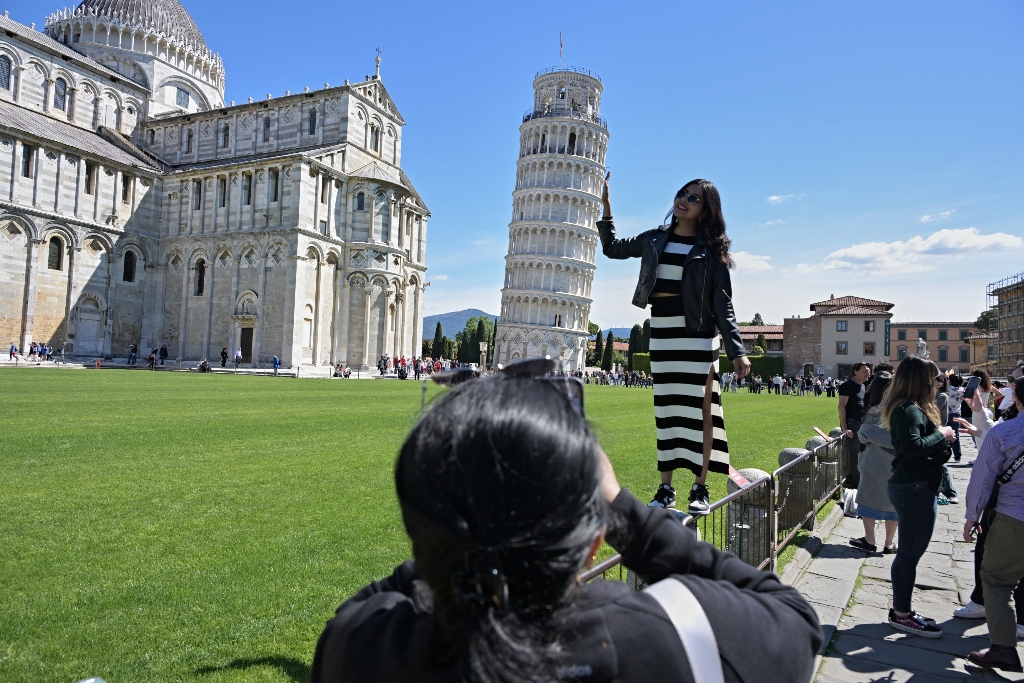
Italy: the land of pizza, football legends, and designer fashion. Sounds great, right?
But there’s so much more to this country than meets the eye. Underneath all the glitz and glamour is a hub of creativity, research, and world-class education waiting to be discovered.
The best part? Many of Italy’s top universities actively welcome international students and provide pathways to study in Italy without IELTS.
Instead of standardised tests, they prioritise your previous academic achievements, other proofs of English proficiency, or interviews to evaluate your skills.
Ultimately, for some, it’s an easier way to start your Italian adventure.
A world-class education accessible to all
Italy offers a blend of academic excellence and cultural richness, making it an ideal destination for international students.
In fact, the number of international students enrolled in Italian universities has nearly doubled over the past decade, increasing from 2013’s 65,934 to 2023’s 109,681, according to Uni-Italia.
With six universities ranked among the top 300 globally in the QS World University Rankings 2025, many choose Italy for globally recognised degrees that open doors to endless opportunities.
Affordability is another key advantage. Public universities in Italy charge between US$935 to US$4,158 per year, making it one of the most budget-friendly destinations in Europe for international students.
Compare that to the UK, where international students often pay two or three times the domestic fees of US$5,620 to US$10,423 per year, and it’s easy to see why Italy is a smart choice for budget-conscious students.
Plus, being part of the European Higher Education Area means your Italian degree unlocks opportunities to continue your studies across Europe easily.
Beyond academics, Italy offers a lifestyle that few other countries can match. Imagine spending your weekends exploring the Colosseum, enjoying the Amalfi Coast, or trying authentic Italian gelato.
With every bite of pasta and every café visit, you’ll feel part of a culture that knows how to celebrate life.
What’s the deal with IELTS?
The International English Language Testing System (IELTS) is a globally recognised test that measures how well someone can speak, read, write, and listen in English.
Trusted by over 11,500 institutions, including universities, employers, and governments, more than four million people take it annually for higher education, professional, or migration purposes.
But what makes IELTS so popular? For one, its accessibility and flexibility.
Testing centres are available in 4,000 locations across 140 countries, and if you prefer to stay home, IELTS Online lets you take the test remotely.
Plus, it includes accents from the UK, North America, and Australasia and accepts both British and American spellings. Doing so equips test takers for success in diverse English-speaking environments.
Meanwhile, in universities worldwide, IELTS is crucial in ensuring international students are prepared for multicultural academic settings.
By requiring a minimum English language proficiency score, universities guarantee that students can effectively communicate with peers and professors.
However, it is not always required. For example, you can study in Italy without IELTS.
Many Italian universities welcome students who have completed their previous studies in English or graduated from an English-speaking school.
If you don’t have an IELTS score, other language tests like the Test of English as a Foreign Language (TOEFL) or Cambridge English Qualifications are often accepted. Some universities even conduct interviews to assess your language skills.
5 universities where you can study in Italy without IELTS
View this post on Instagram
University of Florence
History and innovation converge here. With roots dating back to the early 14th century, the University of Florence stands as one of the oldest universities in the world.
Today, this prestigious institution caters to over 50,000 students, supported by 1,800 lecturers and researchers, 1,600 technical and administrative staff, and over 1,600 research assistants and doctoral candidates.
As one of Italy’s largest public research systems, the University of Florence excels in scientific research, playing a prominent role in European Union Technology Research and Development projects.
Ready to join? Good news for EU and EU-level students: you don’t have to take the Italian language test.
Non-EU students living abroad, on the other hand, must pass the test if applying for Italian-taught degrees.

Pisa is a leading education hub in Europe, comprising the University of Pisa, Scuola Normale Superiore di Pisa, and the School of Advanced Studies Sant’Anna. Source: AFP
University of Pisa
When people think of Pisa, they often picture the famous Leaning Tower in the Piazza dei Miracoli.
Legend has it that Galileo Galilei, one of Pisa’s most celebrated figures, conducted his groundbreaking experiments on gravity from the top of this very tower.
Look beyond this tower and you will find a thriving student city.
The University of Pisa, established in the 14th century by Pope Clement VI and among the 20 oldest universities worldwide, alone hosts over 50,000 students.
It has been recognised for its research centres internationally and prides itself on being the first university to launch a computer science degree in Italy.

Fun fact: Turin is known as the “Chocolate Capital of Italy” and the birthplace of Nutella. Source: AFP
University of Turin
One of the oldest and most prestigious universities in Italy, the University of Turin is home to almost 80,000 students across 120 buildings in the city and throughout Piedmont.
It is a true “city-within-a-city,” blending culture, innovation, and professional growth.
The university offers a wide range of academic disciplines and its research centres, particularly in medical diagnostics and nanotechnology, that are among the best in the country, driving scientific advancements.
In addition to its traditional academic strengths, the university is a leader in offering specialised programmes not found elsewhere in Italy, including biotechnology, military strategy, and sport sciences. It is also expanding into modern sectors like food science and IT.
View this post on Instagram
Polytechnic University of Milan
Another university in Milan where you can study in Italy without IELTS is the Polytechnic University of Milan, more commonly known in the country as Politecnico di Milano. Founded in 1863, it is Italy’s largest university for engineering, architecture, and design, with over 48,000 students across campuses in Milan, Lecco, Cremona, Mantova, and Piacenza.
The university is driven by a strong research focus, with industry partnerships, European funding, and cutting-edge labs fostering innovation.
Politecnico di Milano’s academic offerings cater to all levels, with many postgraduate programmes in English. They draw students from over 100 countries, solidifying its place as a global leader in technical education.

Milan might be famous for fashion and shopping, but it’s also a hub for art lovers, home to museums filled with masterpieces from the Renaissance to today. Source: AFP
University of Milan
Milan is a city that blends the cosmopolitan buzz of a modern city with the warmth of Italian tradition.
As an international student, you’ll fall in love with the food (hello, panzerotti and pasta!), friendly locals, exciting nightlife, and more.
Don’t miss the hotspots like Colonne di San Lorenzo or the trendy Navigli area for an unforgettable experience.
Milan’s academic opportunities are equally impressive. The University of Milan offers 10 areas of study and 130 programmes, including bachelor’s, master’s, and combined master’s degrees. There are also many postgraduate opportunities available.
And while many courses are in Italian, there’s a growing number of English-taught master’s programmes perfect for international students.
Among these is the Master of Science in Data Science, which doesn’t even require an IELTS score for admission.










